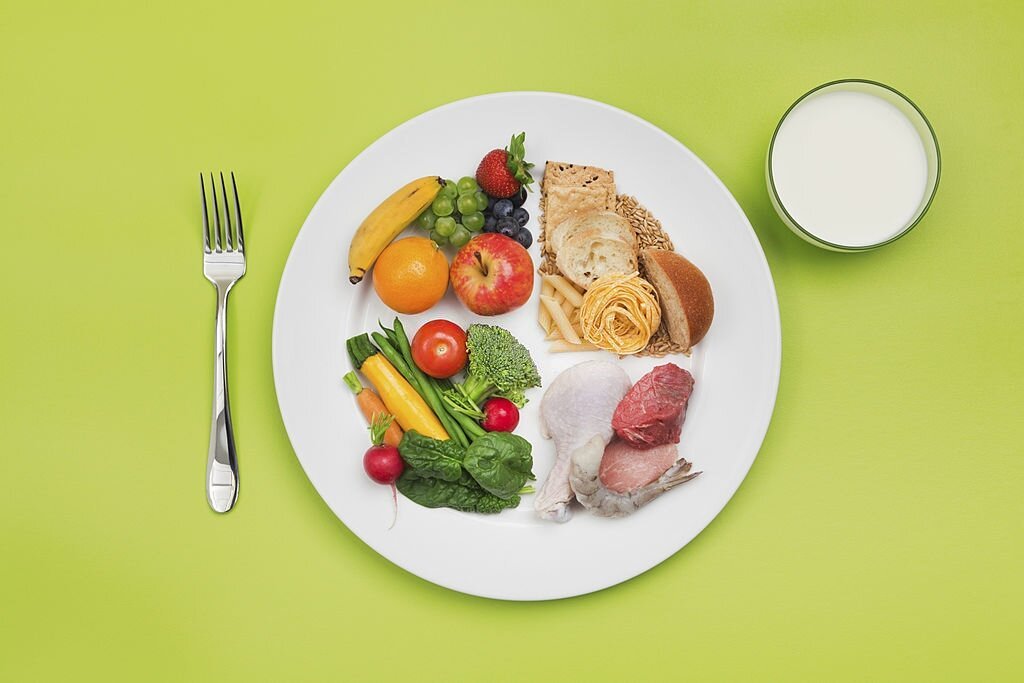Dieting
High-Protein Diet For Weight Loss – Pros And Cons

Several research studies suggest that a high protein diet promotes fat loss from the body and initiates muscle growth. High protein diets boost metabolism, decrease hunger, keep you full, and preserve muscle mass.
High-Protein Diet For Weight Loss
This type of diet requires you to get 20% of calories from protein and intake carbs and fats in a proportionate way. There are many diets that focus on high-protein such as Atkins, Zone, Dukan, Montignac, and a few others.

What to eat on a high protein diet?
A good diet meant for wellness must comprise of carbohydrates, protein, and fats in the appropriate ratio. The amount of protein ingested would depend on different factors such as gender, body type, age, weight, level of activities indulged in, etc. You must more of lean proteins in your diet and cut out refined sugars and refine carbohydrates from your plate.
- Foods you must eat – Whole grains, all types of leafy vegetables, seafood, eggs, seeds, soy, lean meat from all sources, and fruits that are low on a glycaemic index such as berries.
- Foods you must avoid – Fried foods, refined carbs like pasta, white bread, noodles, all types of candies, or sugary treats.
A high protein diet, like some other diets, has some pros and cons. Here is what you should know about this diet before implementing it in your lifestyle:
Pros:
One could effectively lose weight if the diet is followed in the right way. This diet is also followed by athletes and bodybuilders that look forward to building muscle mass.
- Protein builds muscle – Protein helps in building muscle mass. Muscles make you fit and strong. This way, you tend to stay more active throughout the day. When your body fat is replaced with muscles, you will continue to burn fat even at rest
- Keeps you satiated – Protein-rich meals will keep hunger pangs at bay. You will not feel the need of snacking when you have protein-rich foods. This feeling of fullness will help you to eat less, burn more calories, and boost the weight loss process.
- Healthy eating habits – A plate that has protein-rich foods will always be healthy. There will be no place for unhealthy foods. Protein-rich foods don’t just provide you with protein but with other macronutrients also. For instance, fish will fulfill the requirement of both protein and healthy fats.
- Proteins enhance calorie burning – Your body will have to work harder not just to chew a protein-rich food but also to digest it. This was you burn more calories. This is termed as the thermic effect of food. However, the calories burnt are not many, so the weight loss goal should be planned wisely.
Cons:
High protein foods usually ignore other important foods, such as grains and fruits. This is why many health experts do not consider it to be a versatile diet plan. There are some drawbacks to it:
- Risk of heart diseases – High protein diet includes a lot of meat and dairy products. Consuming excessive of these foods for a longer period may put your heart at risk.
- Nutritional Deficiency – Consuming meals that are rich in protein usually restricts the intake of carbohydrates. This results in a deficiency of fiber and other nutritional requirements that is necessary for the body. It will usually result in problems like constipation, bad breath, and constipation.
- Problems of the Kidney – Ingestion of protein cause the body to produce protein waste. It is the job of the kidneys to filter this waste, which they do as they have millions of nephrons to remove this waste through urine. If someone has weak or unhealthy kidneys, then its ability to remove water goes down. The protein waste will build up in your blood and will cause problems like weakness, nausea, anorexia, and changes in taste buds.
Therefore people that already have heart issues or have problems with their kidneys should not follow a high-protein diet. Experts say that people following this diet should add both plant and animal-based protein to ensure the intake of protein in a good way. They suggest using a calorie tracker or an app that will help you identify the calories and nutritional value of the meals that you are consuming.






















